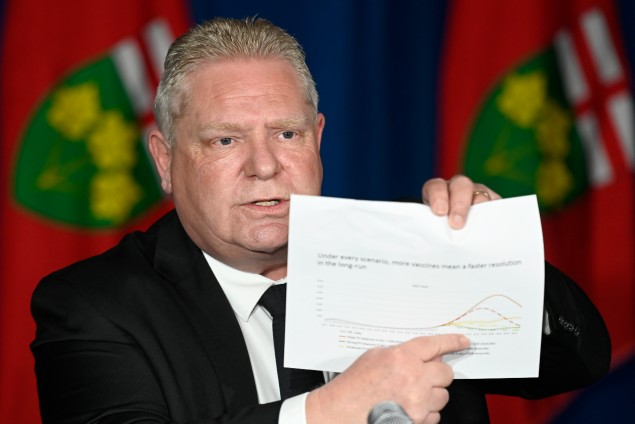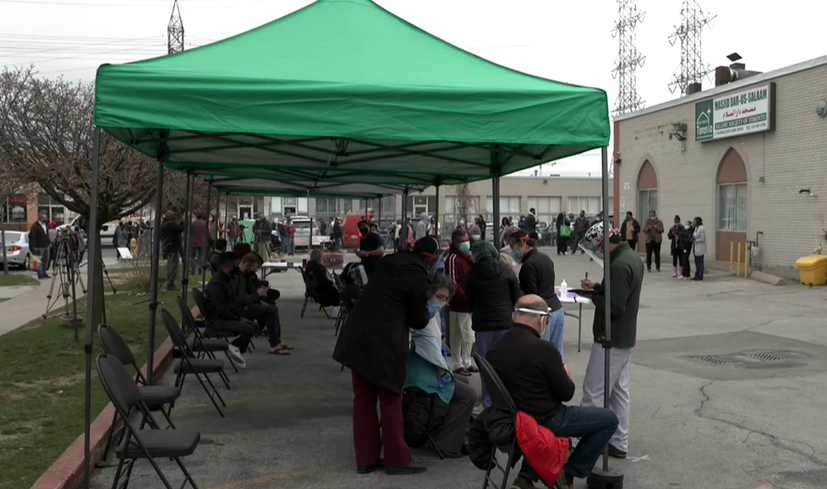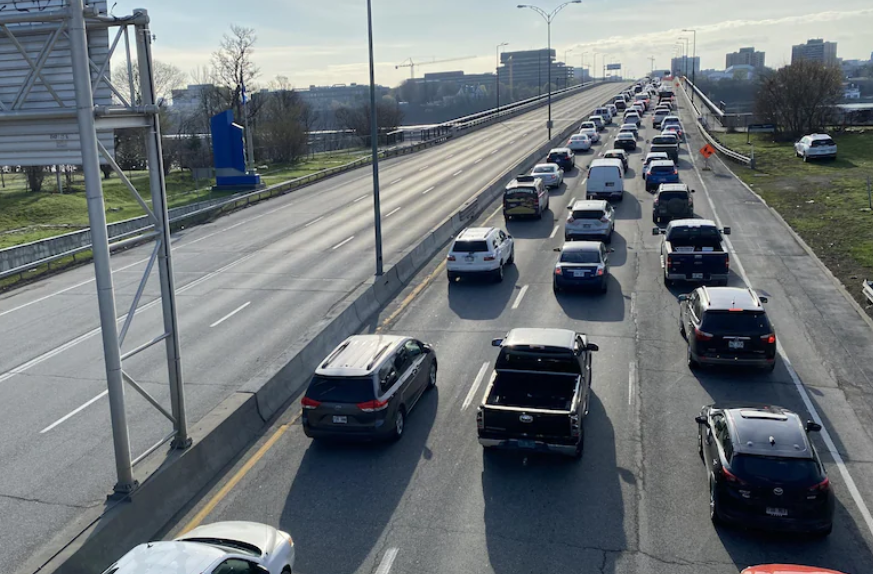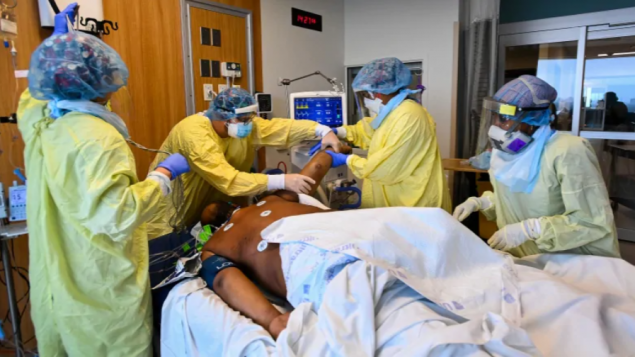As medical advisors predicted, the number of hospitalizations and admissions to intensive care units is threatening to overwhelm the healthcare system in the large province of Ontario. The situation is so bad that the federal government and other provinces are offering to answer Ontario’s call for help.
The Ontario Hospital Association says this is the most serious civil emergency in the history of the province and it is calling on the public for patience and its full support.
In Canada, it is the provinces and territories that are responsible for the delivery of publicly funded health care services. It is they too, which decide on vaccination rollouts and restrictions to curb the spread of COVID-19 and other infections.

On April 16, 2021 Ontario Premier Doug Ford presented a graph showing that COVID-19 cases could increase to 10,000 a day. He extended restrictions to fight what has become a losing battle with infection rates. (Frank Gunn/The Canadian Press)
New restrictions roundly criticized
On Friday, April 16 the government of Ontario ordered new restrictions which were roundly criticized in several quarters. Among them, it ordered public parks closed, it issued a stay-at-home order and gave police the power to stop anyone anywhere, anytime to ask for their addresses and where they were going.
Several police forces including those in Canada’s largest city of Toronto and the national capital, Ottawa, refused and several organizations said this measure would unfairly target minorities. The measure was withdrawn the next day.
After health care experts said that outdoor activities were not the problem and that in fact, people are safer outdoors than they are indoors, the government withdrew the parks measure.
Some advisors were vociferous in their criticism of restrictions. Dr. Peter Jüni, the science director of the province’s COVID-19 advisory table said he would quit but, in the end, did not. He told CBC “the new restrictions show that more than a year into the pandemic the province doesn’t understand how the virus spreads.”

The province of Ontario has begun using pop-up clinics to vaccinate people in areas with high rates of COVID-19 infection. (CBC News)
Lack of sick leaved flagged by health experts
What health experts across Canada keep saying is that governments must guarantee sick leave benefits so that people who have COVID-19 stay home and not spread the disease. What they have found is that poor workers simply cannot afford to be absent from work when they are sick because it deprives them of the ability to pay the rent or feed their children. Ontario Premier Doug Ford again today refused to legislate sick leave benefits. Some provinces have minimal sick pay provisions. The province of Quebec for example has legislated two paid sick days, which is not nearly enough for a person with COVID-19 to recover or no longer be contagious.
Health officials have also urged governments to send mobile vaccination units to low-income areas which have higher infection rates. People living in these areas may not have access to internet to book vaccination appointments, they may not have cars to get to inoculation sites and they may face language barriers in accessing information. Ontario has begun to heed this advice and is sending mobile units to certain districts in the province. It is also opening up administration of the AstraZeneca vaccine to people aged 40 and up.

Ontario closed its borders with Quebec, causing major traffic jams in places like Ottawa where people live in one province but work in the other. (Christian Larivière/Radio-Canada)
Federal and provincial help on the way
Meanwhile, the federal government will send federal health care staff and equipment to the front lines in Ontario. It will also boost rapid testing in hot spots and support contact tracing and isolation.
While many provinces like British Columbia and Quebec are also grappling with high rates of infection, others like the eastern provinces of Newfoundland and Labrador, Nova Scotia and Prince Edward Island have managed to control the disease and have low rates of infection. They too are offering to send some health care workers to Ontario to help. However, provinces will not send vaccine doses to Ontario because they need them to protect their own populations.
Ontario has closed its borders with the neighbouring provinces of Quebec and Manitoba to all but essential travel, and all school children will stay home and only have access to online learning.
There has been vigorous criticism of the Ontario government’s handling of the pandemic and suggestions that its mishandling of the crisis has led to its spiralling out of control.







For reasons beyond our control, and for an undetermined period of time, our comment section is now closed. However, our social networks remain open to your contributions.